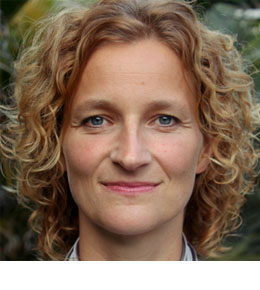

PhD Positions
The Hertie Institute for Clinical Brain Research (Dept. of Neurodegenerative Disease) and the Institute of Medical Genetics and Applied Genomics of the University of Tübingen are inviting applications for
2 PhD students, TVL E13, 65%, 3 years (extension possible) in Genomics of Rare Diseases
The Hertie Institute for Clinical Brain Research (HIH), together with the Department of Neurology, forms the Center for Neurology at the University of Tübingen. It is dedicated to basic and translational research in neurological diseases. Together with the Institute of Medical Genetics and Applied Genomics (IMGAG) of the University Hospital Tübingen, it is part of the TübingenNeuroCampus (TNC). Scientists in the more than 100 active research groups of the TNC pursue theoretical, system-neuroscientific, molecular, and clinical research approaches in their entire breadth using a wide range of methods.
The groups of Rebecca Schüle (Genomics of Rare Movement Disorders, HIH) and Stephan Ossowski
(Computational Biomedical Genomics, IMGAG) focus on genomics, pathophysiology and translational research in neurodevelopmental and neurodegenerative disorders.
We are currently inviting applications for 2 PhD positions in Genomics of Rare Diseases.
Project 1 (Bioinformatics): You will perform bioinformatic analysis on large whole genome (WGS) and RNA sequencing (RNS Seq) datasets with the aim to identify novel disease genes and mutation mechanisms causing Hereditary Spastic Paraplegia (HSP), a rare form of motoneuron disease. A particular focus of this project will be the analysis of structural DNA variation with long Nanopore sequencing reads as well as the development of new analysis strategies to interpret and prioritize non-coding variants, aided by combined WGS and RNA Seq analysis.
This position is funded by the ‘Bundesministerium für Bildung und Forschung’ (BMBF) via funding for the TreatHSP network (https://www.treathsp.net).
Project 2 (Functional Validation): You will work in cellular disease models including iPSC-derived neurons to demonstrate the pathomechanism of novel candidate mutations and pathogenic relevance of candidate disease genes. Hereby you will apply a wide range of molecular genetic, biochemical and cell biological methods. Tools we frequently use in the lab are CRISPR/Cas9 genome editing of iPSCs and other cell types. You may apply proteomics or lipidomics to determine the cellular consequences of disease-causing mutations and apply genetherapy approaches in vitro to test therapeutic strategies.
This position is funded by the European Union via funding for the Horizon2020 project Solve-RD (http://solverd.eu).
What we are looking for:
We are looking for an enthusiastic and ambitious candidate with an excellent Master’s degree in Molecular Genetics, Biochemistry, Biotechnology, Biology, Informatics/Bioinformatics or related life sciences.
What we are offering:
We offer two challenging interdisciplinary projects that are integrated into major national and European research consortia at the interface of genomics and translational medicine, well-equipped laboratories with top-notch facilities, excellent supervision in a highly collaborative international environment and affiliation with the Graduate Training Center of Neuroscience.
Both positions are available immediately. Salary will be determined according to the German collective wage agreement in public service (TVL 13, 65%), 3 years.
Application:
If you are interested in either of the two projects please send your full application including a motivation letter, your CV, transcripts, your master’s thesis and/or publications to Rebecca.schuele-freyer@uni-tuebingen.de
Bachelor`s and Master's Thesis
We regularly have openings for Bachelor or Master Theses in genetics or cellular biology. Here, you can learn about genome and exome sequencing, all major molecular-genetic and protein biochemical techniques, microscopy, including confocal microscopy and live cell imaging, work with established cell cultures, as well as generating and differentiating human induced stem cells (iPSC). If you are interested, please contact us via E-mail (rebecca.schuele-freyeruni-tuebingen.de). We can then discuss, which project suits your interests best. We’d also be happy to offer a short “min lab rotation” before you engage in a Bachelor’s or Master’s Thesis, so we can get to know each other and make sure you are at the right place.
Medical Doctor Thesis
We regularly have openings for medical students to perform their medical thesis (Dr. med.) in our lab. Most of the projects we offer require a "Freisemester". If you are interested, please contact us via E-Mail (rebecca.schuele-freyeruni-tuebingen.de). We'd also be happy to offer a short "mini lab rotation" before you engage in your thesis, so we can get to know each other and make sure you are at the right place.

Center of Neurology
Hertie Institute for Clinical Brain Research
Department Neurodegenerative Diseases
Otfried-Müller-Straße 27
72076 Tübingen
Phone: +49 (0)7071 29-82057



